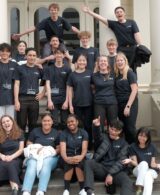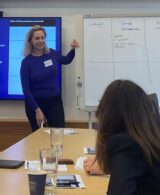Summit season: updates from the ground ahead of APEC
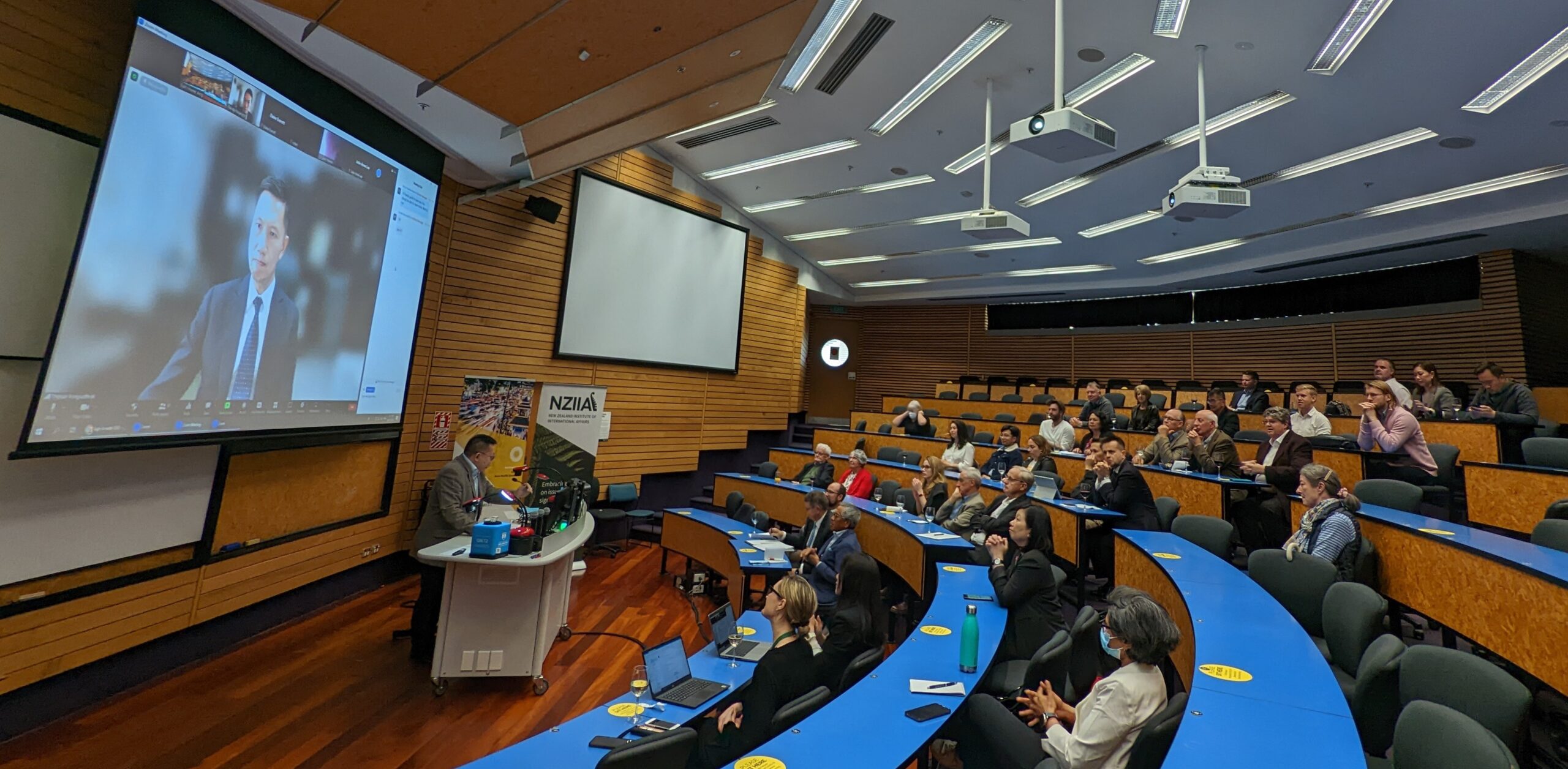
11 November 2022
With the “summit season” well underway this November, yesterday’s Asia Forum provided a timely update from the ground surrounding the hype that is building up in Bangkok and the issues at stake just before the start of the Asia-Pacific Economic Cooperation (APEC) Summit.
Professor Thitinan Ponsudhirak, Director of Institute of Security and International Studies at Chulalongkorn University and Professor Pavida Pananond from Thammasat Business School, Thammasat University spoke from Bangkok to an audience of about 60 people at Victoria University of Wellington’s Pipitea campus and online. Titled “APEC 2022 and APEC Summit 2022: Regionalisation and Challenges”, the talk was organised by Southeast Asia Centre of Asia-Pacific Excellence in collaboration with Asia Forum and New Zealand Institute of International Affairs (Wellington Branch).
Southeast Asia is now at the centre of diplomatic attention as world leaders converge in the region, with the East Asia Summit taking place from 10-13 November in Phnom Penh, followed by the G20 Summit in Bali on 15-16 November and the APEC Summit in Bangkok on 18-19 November.
Professor Thitinan said that there is lots of excitement on the ground in Bangkok now – there will be three days of public holidays and the Thai government has even made it into a national campaign for patriotic duty of being host.
However, amidst all the hype over who is coming and what is going to happen, Professor Thitinan cautioned that APEC’s agenda is being overshadowed by geopolitics and geoeconomics, with the Indo-Pacific Economic Framework looming.
Even the guest list of the Thai government is indicative of its priorities elsewhere, he said, referring to French President Emmanuel Macron, Saudi Arabia Crown Prince and Prime Minister Mohammed bin Salman and Cambodia Prime Minister Hun Sen, leaders from three non-APEC countries who have been invited.
In addition, in bringing the gala dinner for attending leaders forward by a day in the last minute to accommodate the official dinner with President Xi, the move by the Thai government also hinted at its priority on China as China makes its way back to international diplomacy.
Therefore, amidst all the dynamics on the ground, Professor Thitinan is not anticipating APEC to come up with any major trade liberalisation announcements.
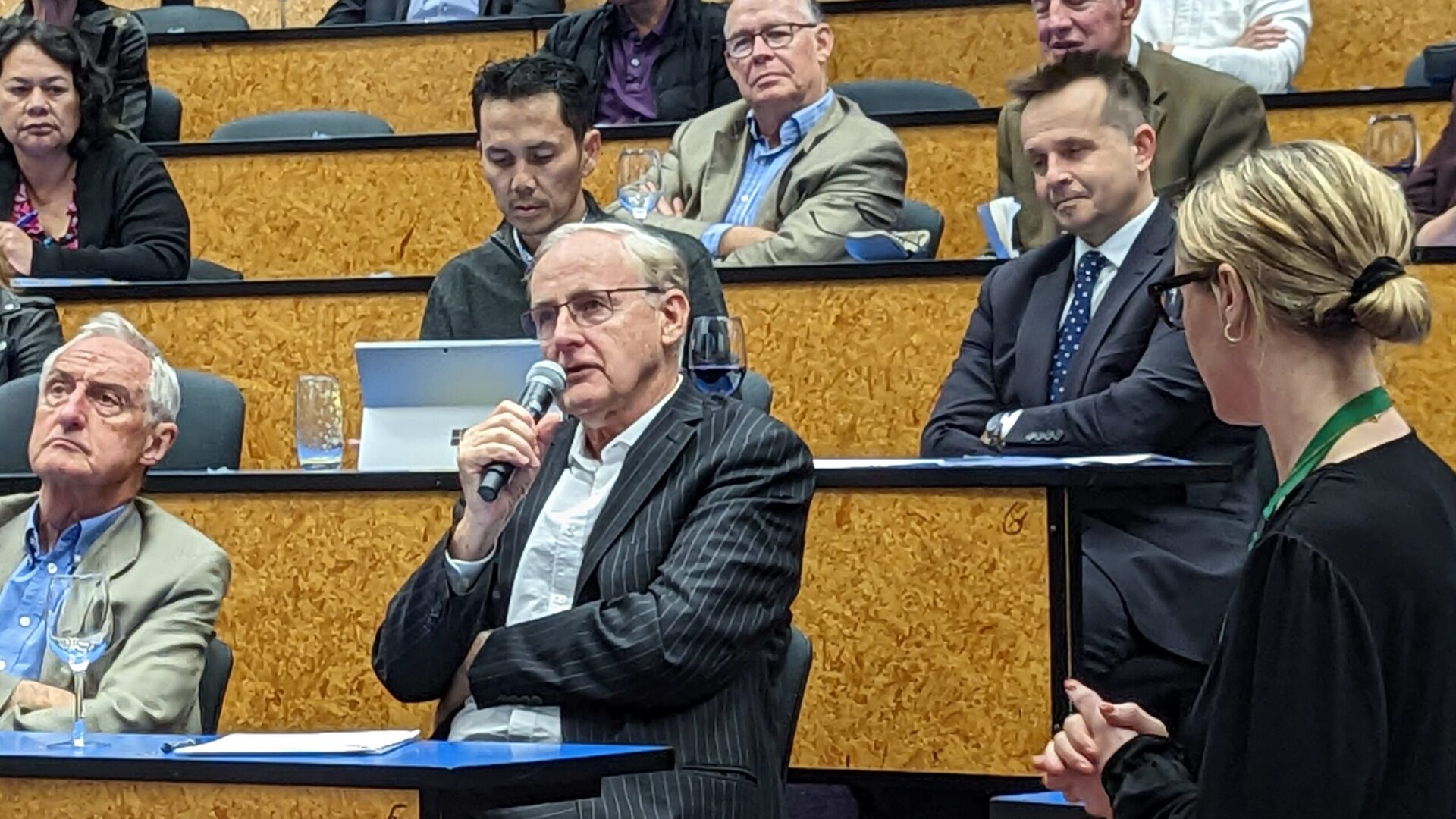
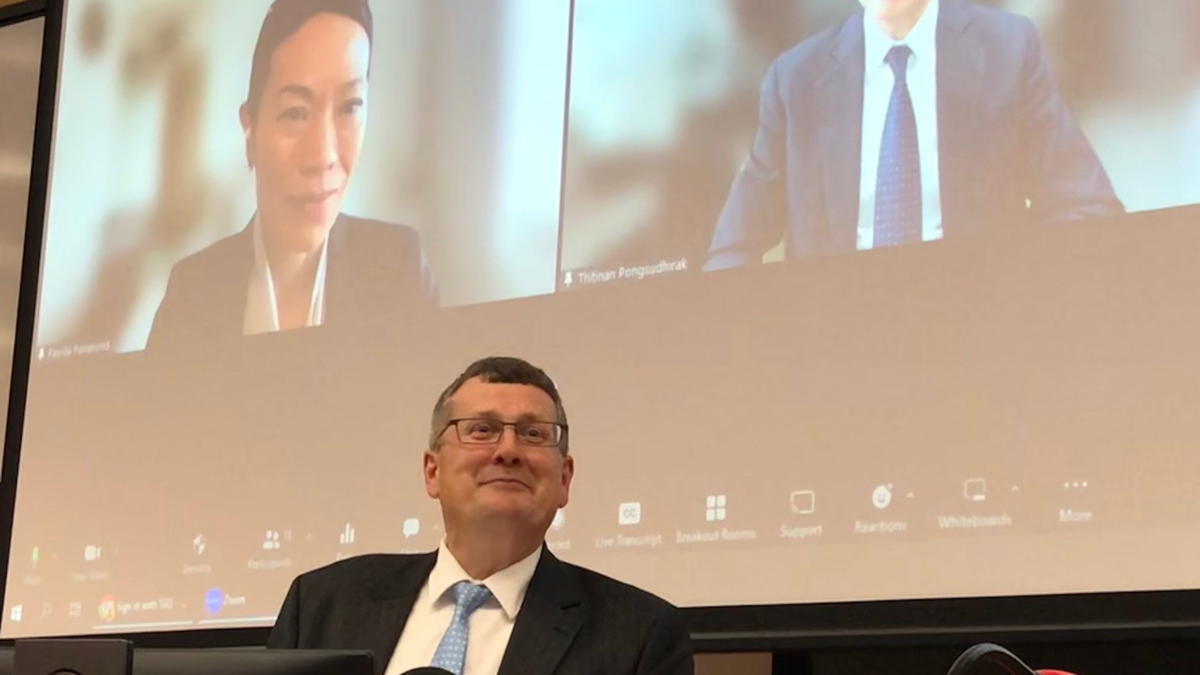
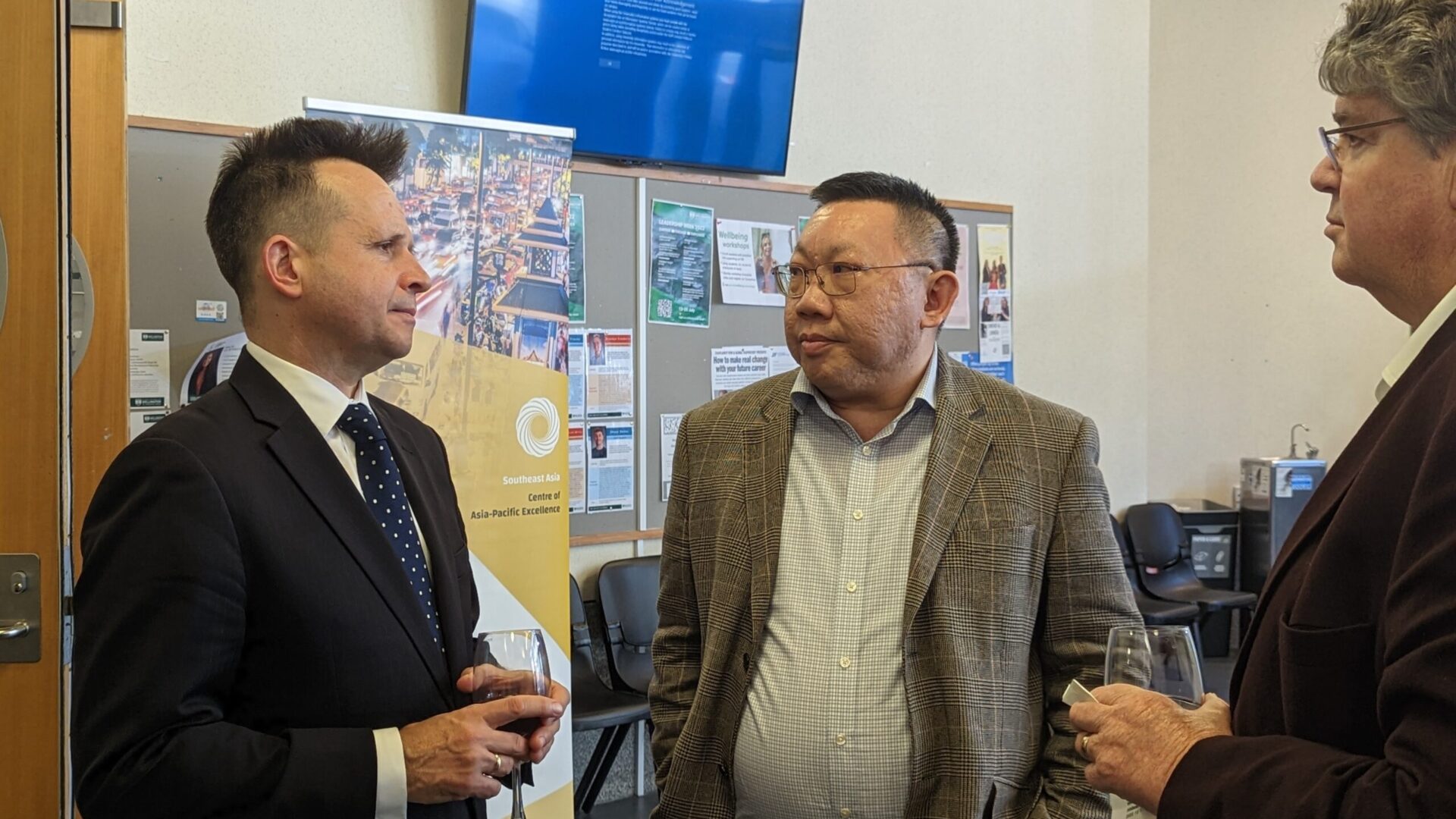
From “Factory Asia” to “Factory and Market Asia”
Is APEC “a perfect excuse for a chat”?
Quoting the joke from an article in the Economist, Professor Pavida felt that APEC is more than that abbreviation.
Professor Pavida was concerned about the upcoming APEC losing its economic focus and becoming more of a showcase for the host country when the attention was more on the guest list, dinner menu and security arrangements.
In talking about regionalisation and what it does for resilience, a post-pandemic key word, she talked about the need to consider resilience from a supply chain perspective on the ground in addition to economics and geopolitics.
Professor Pavida highlighted the increased intra-regional investment among ASEAN countries where China has also become a major market for ASEAN, larger than the US and Europe.
The increased integration in Asia is changing the connection between these countries, moving from “factory Asia” where they produce from and export to other countries further away such as US and EU, to becoming “factory and market Asia” where the economic activities are very much reflecting how these countries in the region are interacting, she said.
She saw the challenge that APEC is facing comes from the US and China trying to exert their power in the region and despite it being started for economic integration, its agenda has become top-down driven to reflect the perspectives of the host country.
In talking about the current business mood in Thailand during the question-and-answer segment, Professor Pavida pointed out that APEC showcases that Thailand is open to reconnecting and it is hoped the return of tourism will inject dynamism.
In his closing remarks, Mr Tony Lynch, Deputy Chief Executive, National Security Group, Department of the Prime Minister and Cabinet said that the session provided a timely discussion and brief amidst intense challenges for ASEAN and paradigm shifts in the Indo-Pacific.
He pointed out that there are important questions and reflections for New Zealand: If it is the end of ASEAN as we know it, what does that mean for New Zealand? What does that mean for regionalism? What does resilience mean for us?






